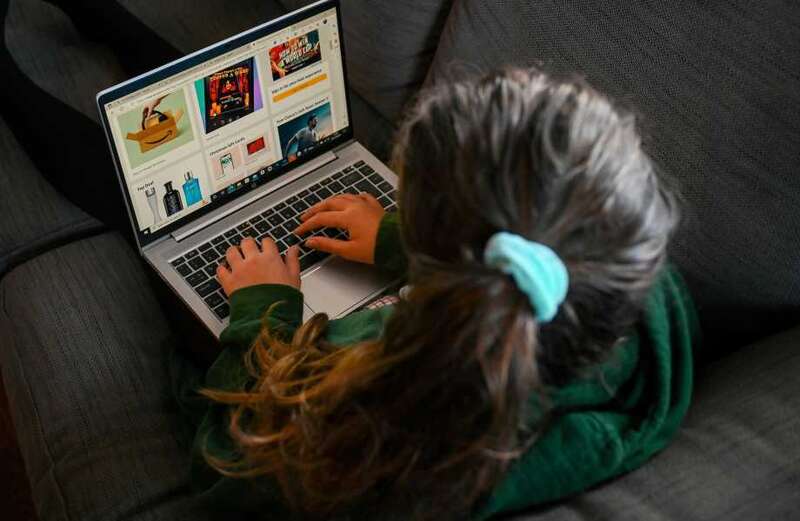A THIRD of parents are much stricter with their kids than they thought they would be – as they grapple with the dangers of the digital world.
A poll of 1,000 mums and dads with children aged between six and 16 found 55 per cent imagined they would be a ‘cool and carefree’ parent – but for many, it isn’t the case.

Three in 10 of these said their kids being online so much has forced them to change their approach.
And 79 per cent decided it was ‘better to be safe than sorry’ as they try to safeguard their online activity.
It also emerged parents find it easier to let kids have independence in the real world when out with friends (35 per cent), than when online (11 per cent).
 Stacey Solomon says her life a 'mess' as she makes New Year's resolution
Stacey Solomon says her life a 'mess' as she makes New Year's resolution
However, 93 per cent feel it’s important to them to allow their children to grow up with a sense of independence, as 85 per cent at least somewhat struggle to find the balance.
Developmental cognitive neuroscientist professor Sam Wass, who worked with parenting app Findmykids, which commissioned the research, said: “Many parents start off with the intention of being cool and carefree, imagining a relaxed approach to raising their children.
“Parents understand real-world risks because we experienced them ourselves as children.
“But the online world nowadays is so different to what we experienced when we were children that it’s easy to panic.
“In the online world though, just as real-world play, there is evidence that over-protecting children, and stopping them from experimenting with risk themselves, can lead to children not having a chance to learn for themselves what’s safe and what’s not.
“Believe it or not your children want to have fun – but they don’t want themselves to get hurt either.
“It’s only by learning to judge risks for themselves that they’ll gain the capacity for independence.”
The study found 38 per cent of parents believe they’re generally more aware of dangers facing children than they thought they would be.
While 30 per cent of those with worries have concerns about how much time they spend online.
More than four in 10 (45 per cent) have tried to adopt a ‘Tech-Free Parenting’ approach that prioritises traditional play and face-to-face interactions.
 Amy Childs prepared to get cruelly mum-shamed after big decision about her twins
Amy Childs prepared to get cruelly mum-shamed after big decision about her twins
But 41 per cent describe themselves as ‘Tech-Savvy Parents’ who embrace educational apps and digital tools where needed.
And 32 per cent confessed to being ‘Helicopter Parents’ – who closely monitor all activity, both online and offline.
Just under six in 10 (58 per cent) believe they were more independent than their children are, when they were the same age.
For 61 per cent, there simply weren’t nearly as many online dangers when they were growing up, if any, according to the OnePoll.com figures.
While 58 per cent feel it was safer on the streets, and 35 per cent were lucky enough to be raised in what they considered a ‘safe’ neighbourhood.
A spokesperson from Findmykids added: “It’s not surprising to see nearly a third of parents describe themselves as ‘Helicopter’ types.
“Children are the most valuable and precious thing in the world, and so obviously you want to keep them safe at all times.
“But insulating them from every mistake can be harmful in the long run and leave them lacking critical understandings of the world.
“Should parents know where their children are at all times, once they reach a certain age? These are questions only each parent can answer for themselves.”


































